- Great Learning
- Free Courses
- Masterclasses
Free Hadoop Course
Introduction to Hadoop
Enroll In Online Hadoop free course and get a completion certificate. Plus, access over 1,000 additional free courses with certificates—just sign up for free!
Instructor:
Mr. Raghu Raman A VIntroduction to Hadoop
14.5K+ learners enrolled so far
Stand out with an industry-recognized certificate
10,000+ certificates claimed, get yours today!
Get noticed by top recruiters
Share on professional channels
Globally recognised
Land your dream job

Skills you will gain
Different techniques of big data analytics using Hadoop
Understand the importance of distributed data storage system
Key Highlights
Get free course content
Master in-demand skills & tools
Test your skills with quizzes
About this course
Data is everywhere. People upload videos, take pictures, use several apps on their phones, search the web, and more. Machines, too, are generating and keeping more and more data. Existing tools are incapable of processing such large data sets. In general, Hadoop and large-scale distributed data processing are rapidly becoming an essential skill set for many programmers. This Hadoop online training will introduce you to Hadoop in terms of distributed systems as well as data processing systems. Hadoop is an open-source framework for writing and running distributed applications that process large amounts of data.
With this Big Data Hadoop online training, you will get an overview of the MapReduce programming model using a simple word counting mechanism along with existing tools that highlight the challenges around processing data at a large scale. Dig deeper and implement this example using Hadoop to gain a deeper appreciation of its simplicity.
A few among India’s highest-rated universities, such as PES University and SRM Institute of Science and Technology, have established a collaboration with Great Learning to provide learners with the best Data Science Master’s Degree Programs. Check here to view more information about the best data science courses and secure a Master’s Degree Certification from these well-esteemed universities post completion of the top Data Science course. Our faculty and mentors are highly experienced professionals in Data Science so that we can provide learners with world-class Data Science training and guide them in becoming successful data scientists in their careers.
Course outline
Introduction to Big Data / Hadoop
Hadoop distributed file system (HDFS)
Intro to ETL
Distributed computing
Map-Reduce abstraction
Programming MapReduce jobs
Introduction to Oozie and HDFS processing
Hadoop cluster and eco system
Input/Output formats and conversion between different formats
MapReduce features
Troubleshooting MapReduce jobs
YARN (Hadoop2.0)
Get access to the complete curriculum once you enroll in the course
Stand out with an industry-recognized certificate
10,000+ certificates claimed, get yours today!
Get noticed by top recruiters
Share on professional channels
Globally recognised
Land your dream job

Introduction to Hadoop

6.75 Hours
Beginner
14.5K+ learners enrolled so far
Get free course content
Master in-demand skills & tools
Test your skills with quizzes
Learner reviews of the Free Courses







What our learners enjoyed the most
Skill & tools
65% of learners found all the desired skills & tools
Our course instructor

Mr. Raghu Raman A V
Adjunct Faculty (Big Data, Machine Learning and AWS)
Raghu is a Big Data and AWS expert with over a decade of training and consulting experience in AWS, Apache Hadoop Ecosystem including Apache Spark.
He has worked with global customers like IBM, Capgemini, HCL, Wipro to name a few as well as Bay Area startups in the US.
Frequently Asked Questions
Will I receive a certificate upon completing this free course?
Is this course free?
Will I get a certificate after completing this Hadoop free course?
Yes, you will get a certificate of completion for Hadoop after completing all the modules and cracking the assessment. The assessment tests your knowledge of the subject and badges your skills.
How much does this Hadoop course cost?
It is an entirely free course from Great Learning Academy. Anyone interested in learning the basics of Hadoop can get started with this course.
Is there any limit on how many times I can take this free course?
Once you enroll in the Hadoop course, you have lifetime access to it. So, you can log in anytime and learn it for free online.
Can I sign up for multiple courses from Great Learning Academy at the same time?
Yes, you can enroll in as many courses as you want from Great Learning Academy. There is no limit to the number of courses you can enroll in at once, but since the courses offered by Great Learning Academy are free, we suggest you learn one by one to get the best out of the subject.
Why choose Great Learning Academy for this free Hadoop course?
Great Learning Academy provides this Hadoop course for free online. The course is self-paced and helps you understand various topics that fall under the subject with solved problems and demonstrated examples. The course is carefully designed, keeping in mind to cater to both beginners and professionals, and is delivered by subject experts. Great Learning is a global ed-tech platform dedicated to developing competent professionals. Great Learning Academy is an initiative by Great Learning that offers in-demand free online courses to help people advance in their jobs. More than 5 million learners from 140 countries have benefited from Great Learning Academy's free online courses with certificates. It is a one-stop place for all of a learner's goals.
What are the steps to enroll in this Hadoop course?
Enrolling in any of the Great Learning Academy’s courses is just one step process. Sign-up for the course, you are interested in learning through your E-mail ID and start learning them for free online.
Will I have lifetime access to this free Hadoop course?
Yes, once you enroll in the course, you will have lifetime access, where you can log in and learn whenever you want to.
What is meant by Hadoop?
Hadoop is an open-source framework for processing, storing, and analyzing massive amounts of distributed unstructured data. It is created to scale up from one server to thousands of machines with a high degree of fault tolerance. Its goal is to scan large data set to produce results through distributing and highly scalable batch processing systems.
Does Hadoop use SQL?
While working with Pig or Hive Hadoop uses SQL because Hadoop Hive is to process to structure and semi-structured data in the form of SQL queries.
Is Hadoop an Operating System?
Hadoop is not an operating system, it is a collection of open-source software utilities which facilitate using a network of so many computers to solve problems consisting of a large amount of data and computation. But Hadoop is going to behave, look and feel like an OS for data centers running cloud applications.
How does Hadoop work?
Hadoop distributed processing for large sets of data over the cluster of commodity servers and works on different machines at the same time. To process different kinds of data, the client provides data and programs to Hadoop. HDFS stores the data, while Mapreduce processes the data and Yarn, Split the task.
Can I learn Hadoop for free?
Yes, you can enroll in this course and learn for free
How can I get a free Hadoop certificate?
After completion of this course, you will get a course certificate from Great Learning which you can share on your Linkedin profile, on CVs, and other documents.
Become a Skilled Professional with Pro Courses
Gain work-ready skills with guided projects, top faculty and AI tools, all at an affordable price.


View Course

Included with Pro+ Subscription

View Course

Included with Pro+ Subscription

View Course

Included with Pro+ Subscription


View Course

Included with Pro+ Subscription

View Course

Included with Pro+ Subscription


View Course

Included with Pro+ Subscription

View Course

Included with Pro+ Subscription
.jpg)
View Course

Included with Pro+ Subscription


View Course

Included with Pro+ Subscription


View Course

Included with Pro+ Subscription


View Course

Included with Pro+ Subscription




View Course

Included with Pro+ Subscription


View Course

Included with Pro+ Subscription


View Course

Included with Pro+ Subscription

View Course

Included with Pro+ Subscription


View Course

Included with Pro+ Subscription
.png)
View Course

Included with Pro+ Subscription

View Course

Included with Pro+ Subscription

View Course

Included with Pro+ Subscription

View Course

Included with Pro+ Subscription

View Course

Included with Pro+ Subscription

View Course

Included with Pro+ Subscription

View Course

Included with Pro+ Subscription
.jpg)
View Course

Included with Pro+ Subscription



View Course

Included with Pro+ Subscription


View Course

Included with Pro+ Subscription

View Course

Included with Pro+ Subscription


View Course

Included with Pro+ Subscription

View Course

Included with Pro+ Subscription

View Course

Included with Pro+ Subscription
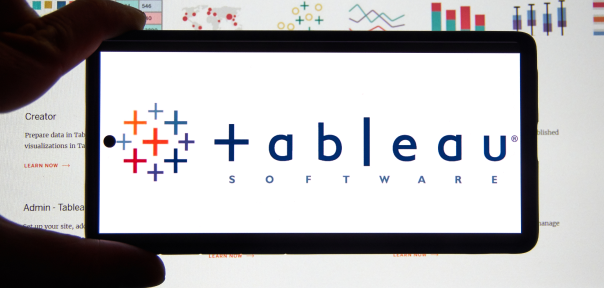
View Course

Included with Pro+ Subscription

View Course

Included with Pro+ Subscription
.png)
View Course

Included with Pro+ Subscription
 (1).jpg)
View Course

Included with Pro+ Subscription

View Course

Included with Pro+ Subscription
.png)
View Course

Included with Pro+ Subscription

View Course

Included with Pro+ Subscription
.png)
View Course

Included with Pro+ Subscription
.png)
View Course

Included with Pro+ Subscription
.png)
View Course

Included with Pro+ Subscription
.png)
View Course

Included with Pro+ Subscription
.png)
View Course

Included with Pro+ Subscription
.png)
View Course

Included with Pro+ Subscription
.png)
View Course

Included with Pro+ Subscription

View Course

Included with Pro+ Subscription

View Course

Included with Pro+ Subscription
.png)


.png)

View Course

Included with Pro+ Subscription
.png)

View Course

Included with Pro+ Subscription


View Course

Included with Pro+ Subscription
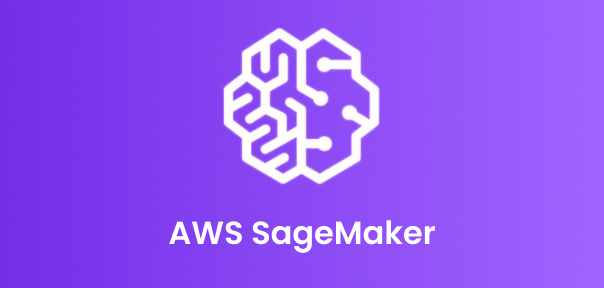

View Course

Included with Pro+ Subscription



.png)
View Course

Included with Pro+ Subscription
Popular


View Course

Included with Pro+ Subscription

View Course

Included with Pro+ Subscription

View Course

Included with Pro+ Subscription


View Course

Included with Pro+ Subscription

View Course

Included with Pro+ Subscription


View Course

Included with Pro+ Subscription

View Course

Included with Pro+ Subscription
.jpg)
View Course

Included with Pro+ Subscription
Microsoft Courses


View Course

Included with Pro+ Subscription


View Course

Included with Pro+ Subscription


View Course

Included with Pro+ Subscription




View Course

Included with Pro+ Subscription


View Course

Included with Pro+ Subscription
IT & Software


View Course

Included with Pro+ Subscription

View Course

Included with Pro+ Subscription


View Course

Included with Pro+ Subscription
.png)
View Course

Included with Pro+ Subscription

View Course

Included with Pro+ Subscription

View Course

Included with Pro+ Subscription

View Course

Included with Pro+ Subscription

View Course

Included with Pro+ Subscription
 (1).png)
View Course

Included with Pro+ Subscription

View Course

Included with Pro+ Subscription

View Course

Included with Pro+ Subscription

View Course

Included with Pro+ Subscription

View Course

Included with Pro+ Subscription

View Course

Included with Pro+ Subscription
.png)
View Course

Included with Pro+ Subscription
.png)
View Course

Included with Pro+ Subscription
.png)
View Course

Included with Pro+ Subscription

View Course

Included with Pro+ Subscription

View Course

Included with Pro+ Subscription
.jpg)
View Course

Included with Pro+ Subscription


View Course

Included with Pro+ Subscription
.png)
View Course

Included with Pro+ Subscription
.png)
View Course

Included with Pro+ Subscription
.png)
View Course

Included with Pro+ Subscription
AI & Generative AI

View Course

Included with Pro+ Subscription

View Course

Included with Pro+ Subscription
.jpg)
View Course

Included with Pro+ Subscription



View Course

Included with Pro+ Subscription


View Course

Included with Pro+ Subscription

View Course

Included with Pro+ Subscription
Data Science & ML


View Course

Included with Pro+ Subscription

View Course

Included with Pro+ Subscription

View Course

Included with Pro+ Subscription

View Course

Included with Pro+ Subscription

View Course

Included with Pro+ Subscription
.png)
View Course

Included with Pro+ Subscription
Management
 (1).jpg)
View Course

Included with Pro+ Subscription

View Course

Included with Pro+ Subscription
.png)
View Course

Included with Pro+ Subscription

View Course

Included with Pro+ Subscription
.png)
View Course

Included with Pro+ Subscription
.png)
View Course

Included with Pro+ Subscription
.png)
View Course

Included with Pro+ Subscription
.png)
View Course

Included with Pro+ Subscription

View Course

Included with Pro+ Subscription
.png)
View Course

Included with Pro+ Subscription
.jpg)
View Course

Included with Pro+ Subscription

View Course

Included with Pro+ Subscription
.jpg)
View Course

Included with Pro+ Subscription
.jpg)
View Course

Included with Pro+ Subscription
.jpeg)
View Course

Included with Pro+ Subscription
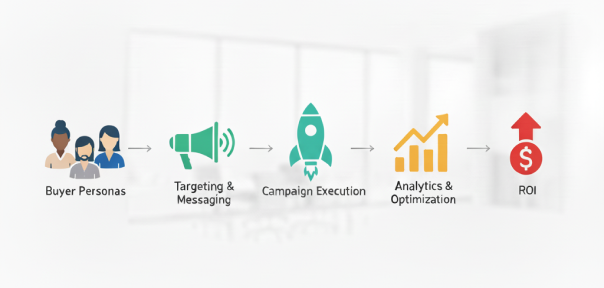
View Course

Included with Pro+ Subscription
.png)
View Course

Included with Pro+ Subscription
Cyber Security
.png)
View Course

Included with Pro+ Subscription
.png)
View Course

Included with Pro+ Subscription
.png)
View Course

Included with Pro+ Subscription

View Course

Included with Pro+ Subscription

View Course

Included with Pro+ Subscription
.png)
Cloud Computing


.png)

View Course

Included with Pro+ Subscription
.png)

View Course

Included with Pro+ Subscription


View Course

Included with Pro+ Subscription


View Course

Included with Pro+ Subscription



.png)
View Course

Included with Pro+ Subscription


View Course

Included with Pro+ Subscription
.jpg)

.jpg)

.png)

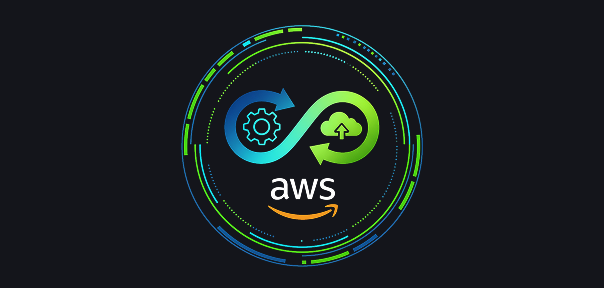
View Course

Included with Pro+ Subscription


View Course

Included with Pro+ Subscription
Subscribe to Academy Pro+ & get exclusive features
$29/month
No credit card required

Learn from 40+ Pro courses
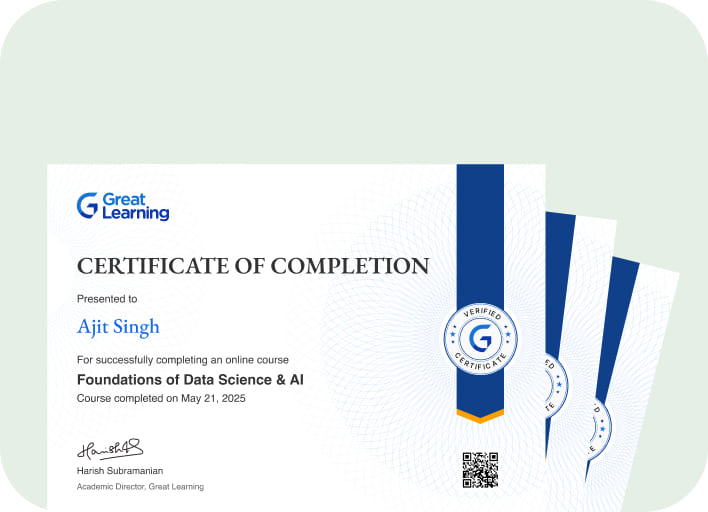
Access 500+ certificates for free
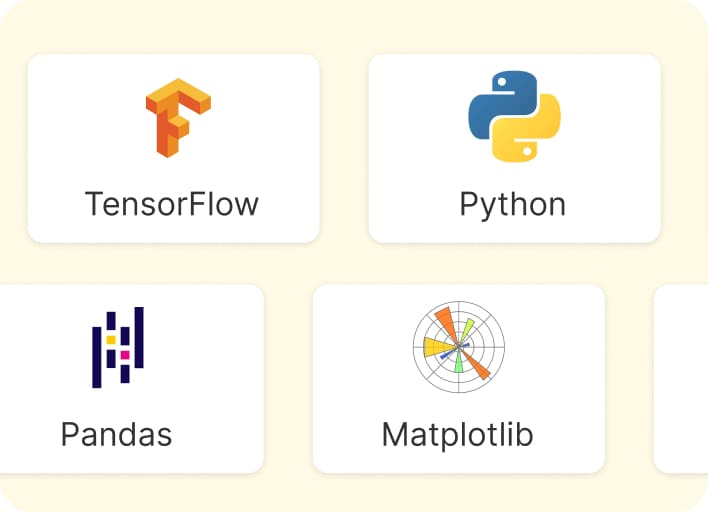
700+ Practice exercises & guided projects
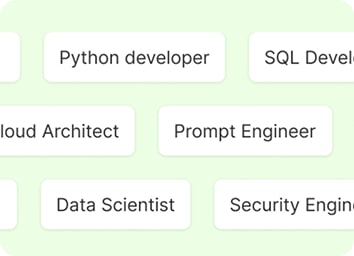
Prep with AI mock interviews & resume builder
Recommended Free Big Data courses


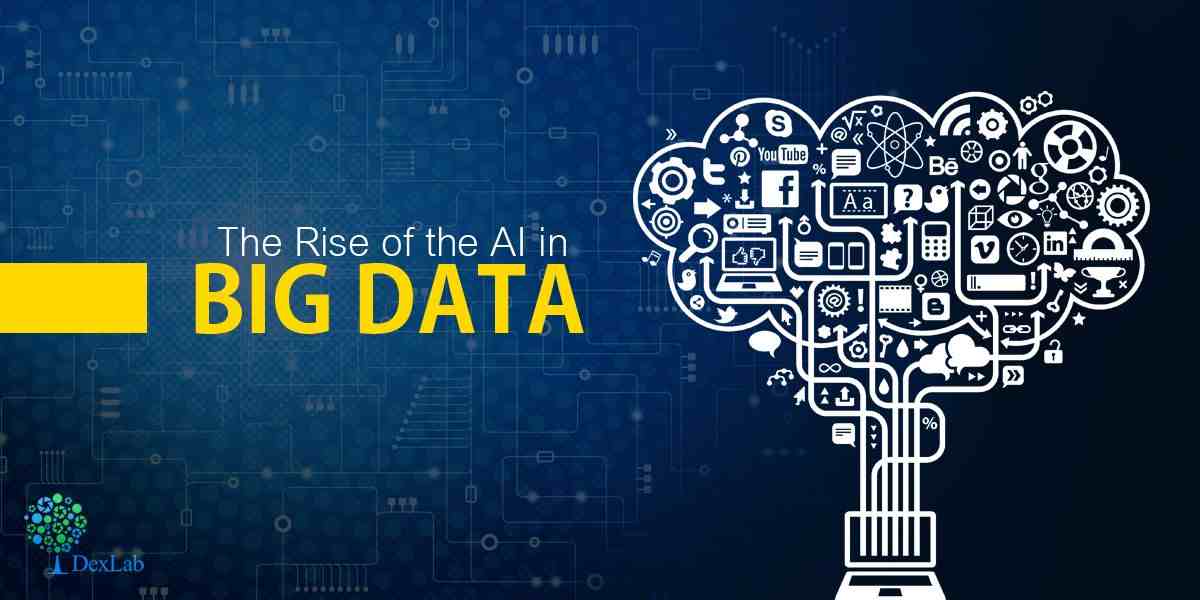

Similar courses you might like




Related Masterclasses Courses
-
Personalized Recommendations
Placement assistance
Personalized mentorship
Detailed curriculum
Learn from world-class faculties
50% Average salary hike -


12 weeks · Online
Know More
-


MIT Professional Education
Applied AI and Data Science Program14 Weeks · Live Online · Weekdays & Weekend
Know More
-


Deakin University
Master of Data Science (Global) Program24 Months · Online
Top 1% UniversityKnow More











